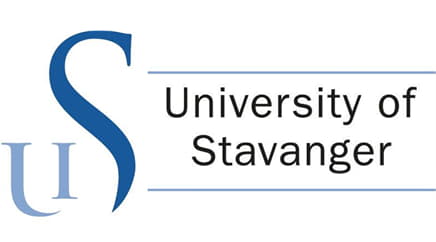Last Date:
Job description
The University of Stavanger invites applicants for a PhD Fellowship in Physics at the Faculty of Science and Technology, Department of Mathematics and Physics. The position is vacant from August 2024.
This is a trainee position that will give promising researchers an opportunity for academic development through a PhD education leading to a doctoral degree.
The hired candidate will be admitted to the PhD program in science and technology. The education includes relevant courses amounting to about six months of study, a dissertation based on independent research, participation in national and international research environments, relevant academic communication, a trial lecture and public defence. Read more about the PhD education at UiS on our website.
The appointment is for three years with research duties exclusively.
Research topic
The physics group at the University of Stavanger has research activities relating to:
Theoretical Particle Physics and Cosmology:
- QCD at high density and temperature
- Gravitational waves
- Phase transitions in the Early Universe.
- Numerical Quantum and Classical Field Theory.
- Quantum and effective field theory.
Materials Physics:
- X-ray and Neutron Scattering
- Computational Material Science
- Theoretical Condensed Matter physics
We seek candidates within all of these areas, but applicants with background and interest within quantum and effective field theory in a broad sense, will be preferred among otherwise equally qualified candidates.
Qualification requirements
We are looking for applicants with a strong academic background who have completed a five-year master degree (3+2) within physics, preferably acquired recently; or who possess corresponding qualifications that could provide a basis for successfully completing a doctorate.
To be eligible for admission to the doctoral programmes at the University of Stavanger both the grade for your master’s thesis and the weighted average grade of your master’s degree must individually be equivalent to or better than a B grade. If you finish your education (masters degree) in the spring of 2024 you are also welcome to apply.
Applicants with an education from an institution with a different grade scale than A-F, and/or with other types of credits than sp/ECTS, must attach a confirmed conversion scale that shows how the grades can be compared with the Norwegian A-F scale and a Diploma Supplement or similar that explains the scope of the subjects that are included in the education. You can use these conversion scales to calculate your points for admission.
You must have a strong background in theoretical physics, in particular quantum field theory.
Experience with applications of effective field theory to physical systems with spontaneously broken symmetry, including computation of scattering amplitudes of Nambu–Goldstone bosons and study of topological aspects of broken symmetry, will be considered an advantage.
Emphasis is also placed on your:
- motivation and potential for research within the field
- professional and personal skills for completing the doctoral degree within the timeframe
- ability to work independently and in a team, be innovative and creative
- ability to work structured manner and handle a heavy workload
- having a good command of both oral and written English






